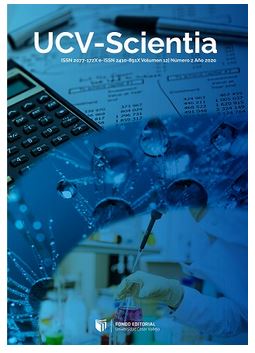Phenomenological study
teacher confidence in their pedagogical practice
DOI:
https://doi.org/10.18050/RevUcv-Scientia.v10n1a9Keywords:
Phenomenology, Pedagogical componentes, Teacher confidence, Persuasion, FrustrationAbstract
The experiences of primary school teachers in their pedagogical practices have allowed them to demonstrate diverse significant attitudes and behaviors for the educational process. The objective of this research was to identify and analyze them through the hermeneutic phenomenological method. By means of the close-up observation technique, the conversational interview and from the reflection of meanings, thematic units such as trust, persuasion, and frustration were established. They arose from the analysis of phenomenology, a method that describes how the world is experienced through consciousness, and from hermeneutics that discovers and interprets through language the meanings that are in it. The emerging category was teacher confidence assumed as a belief in the teacher's behavior toward the student. These procedures allowed the elaboration of individual physiognomy and group physiognomy or phenomenological text.
Downloads
Published
How to Cite
Issue
Section
License

This work is licensed under a Creative Commons Attribution-NonCommercial 4.0 International License.
- Share — copy and redistribute the material in any medium or format
- Adapt — remix, transform, and build upon the material.
- The licensor cannot revoke these freedoms as long as you follow the license terms.
Under the following terms:
-
Attribution — You must give appropriate credit, provide a link to the license, and indicate if changes were made. You may do so in any reasonable manner, but not in any way that suggests the licensor endorses you or your use.
- No additional restrictions — You may not apply legal terms or technological measures that legally restrict others from doing anything the license permits.













